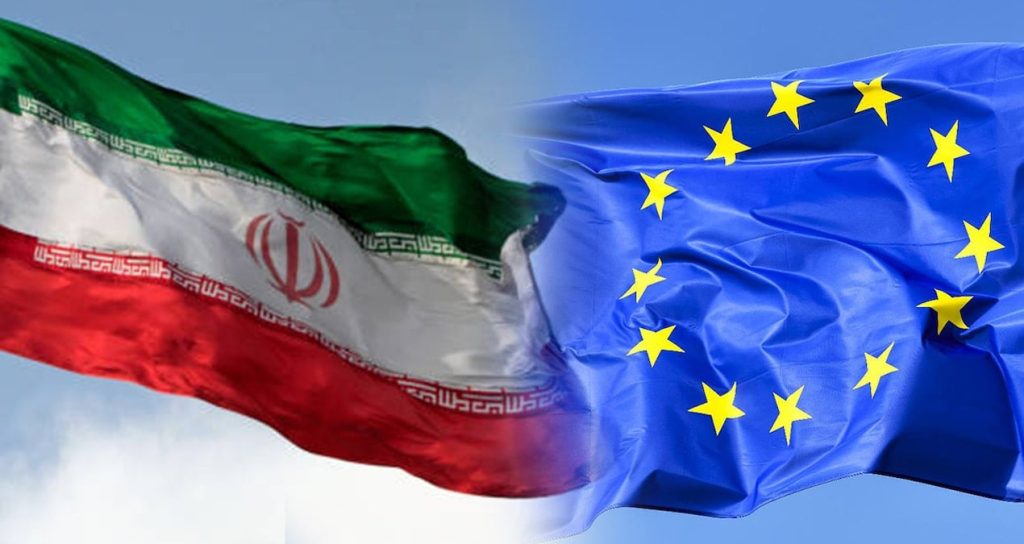A significant meeting involving foreign ministers from Iran, Germany, France, and England took place in Geneva, Switzerland, aiming to address ongoing security concerns related to Iran’s nuclear program. The discussions follow heightened tensions sparked by Israel’s attacks on Iran, with political leaders emphasizing the need for diplomatic negotiations in lieu of military action. The outcome of the summit has potential implications for regional stability and international relations.
| Article Subheadings |
|---|
| 1) Critical outcomes of the summit |
| 2) Calls for continued negotiations with the US |
| 3) European concerns over Iran’s nuclear ambitions |
| 4) Iran’s position on regional security |
| 5) Future diplomatic relations |
Critical outcomes of the summit
During the joint press conference held in Geneva, the foreign ministers addressed various pressing issues, including Iran’s nuclear program and regional tensions. French Foreign Minister Jean-Noel Barrot expressed that the summit aimed to tackle key security concerns affecting the Middle East, underscoring the belief that military intervention alone will not resolve Iran’s nuclear ambitions. He stated,
“There was no definite military solution to Iran’s nuclear issue. Military operations may postpone this problem but cannot eliminate it.”
This diplomatic approach signals a pivot from the prevailing military rhetoric towards a solution grounded in negotiation.
Calls for continued negotiations with the US
British Foreign Minister David Lammy reiterated the collective stance among European nations that Iran must not attain nuclear weapons capability. Lammy’s remarks emphasize the critical nature of ongoing negotiations with Iran as a means to regulate the conflict exacerbated by Israel’s recent actions. He explained, “We call on Iran to continue negotiations with the United States. This is a dangerous moment and it is extremely important that this conflict does not lead to a regional climb.” The urgency of addressing these discussions highlights the potential ramifications on regional stability and global security.
European concerns over Iran’s nuclear ambitions
The foreign ministers collectively noted that Iran’s advancing nuclear capabilities posed an “existential threat” to European nations and allies such as Israel. Johann Wadephul, Germany’s Foreign Minister, indicated serious concern over these developments, stating that the negotiations needed to prioritize the security interests of their allies. “It is important for us to be involved in Europeans, but fundamentally, the US is very important in these negotiations,” he elaborated. This highlights the crucial role that collaboration between major powers plays in addressing these critical geopolitical challenges.
Iran’s position on regional security
Iranian Foreign Minister Abbas Arakçi expressed his discontent regarding the perceived imbalances in the dialogue, lamenting the E3 and EU’s inability to condemn military actions against Iran. Arakçi has asserted that Iran remains open to diplomacy as long as offensive actions cease, stating,
“Iran’s defense capabilities are not the subject of bargaining very clearly.”
This statement underscores Iran’s insistence on maintaining its sovereignty and security while also emphasizing a readiness for dialogue when conditions are favorable.
Future diplomatic relations
The meeting concluded on a note of cautious optimism, with Kaja Kallas, the EU High Representative for Foreign Relations, affirming the agreement to continue dialogues aimed at reducing tensions. The ministers collectively portrayed a willingness to keep lines of communication open, seeking pathways for effective negotiation. Arakçi suggested that Iran is prepared to further engage with the E3 and the EU. “We support the continuation of negotiations with E3 and the EU,” he stated. These sentiments reflect a collective commitment to mitigate tensions and foster an environment conducive to future diplomacy.
| No. | Key Points |
|---|---|
| 1 | The meeting in Geneva included Iran and E3 foreign ministers discussing Iran’s nuclear program. |
| 2 | Military solutions to Iran’s nuclear issue are deemed ineffective by the involved parties. |
| 3 | Continued negotiations with the United States are deemed critical for regional stability. |
| 4 | Iran’s nuclear ambitions pose a significant threat as highlighted by European leaders. |
| 5 | Iran remains open to diplomatic discussions under conditions of cessation of aggression. |
Summary
The Geneva summit represented a critical juncture in addressing the escalating tensions surrounding Iran’s nuclear program. With leaders prioritizing diplomatic solutions over military interventions, there is hope for future negotiations that may pave the way for a more stable and secure region. As world powers continue to engage with Iran, the outcomes of these discussions will likely have far-reaching consequences for international relations and peace in the Middle East.
Frequently Asked Questions
Question: What was the main focus of the meeting in Geneva?
The primary focus of the meeting was to address security concerns related to Iran’s nuclear program and to discuss strategies for easing tensions in the Middle East.
Question: Why do European leaders consider Iran’s nuclear ambitions a threat?
European leaders classify Iran’s nuclear ambitions as a concern due to the potential for nuclear weapons development, which could destabilize the region and pose threats to allied countries such as Israel.
Question: What is Iran’s stance on negotiations?
Iran has expressed a willingness to engage in negotiations with the E3 and the EU, provided that military aggression ceases, highlighting its commitment to diplomacy under favorable conditions.


